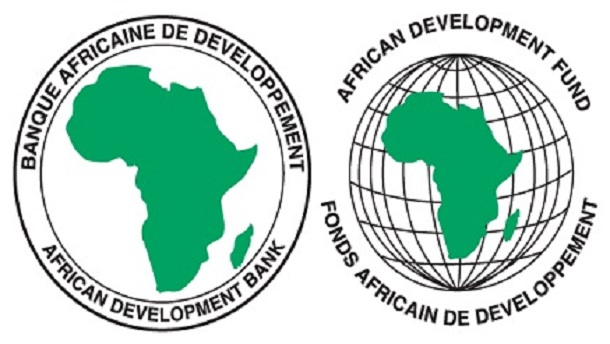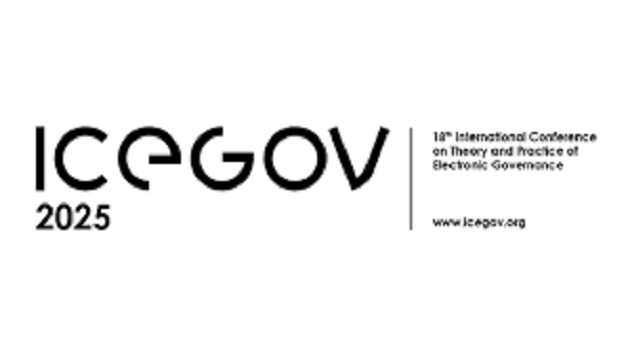General News
AfDB Board Approves Establishment of African Pharmaceutical Technology Foundation

The African Development Bank’s Board of Directors has approved the establishment of the African Pharmaceutical Technology Foundation, a new groundbreaking institution that will significantly enhance Africa’s access to the technologies that underpin the manufacture of medicines, vaccines, and other pharmaceutical products.

Dr. Akinwumi Adesina, African Development Bank Group President, said: “This is a great development for Africa. Africa must have a health defense system, which must include three major areas: revamping Africa’s pharmaceutical industry, building Africa’s vaccine manufacturing capacity, and building Africa’s quality healthcare infrastructure.”
During the African Union Summit in Addis Ababa in February 2022, the continent’s leaders called on the African Development Bank to facilitate the establishment of the African Pharmaceutical Technology Foundation.
Adesina, who presented the case for the institution to the African Union said: “Africa can no longer outsource the healthcare security of its 1.3 billion citizens to the benevolence of others.” With this bold initiative, the African Development Bank has made good on that commitment.
The decision is a major boost to the health prospects of a continent that has been battered for decades by the burden of several diseases and pandemics such as Covid19, but with very limited capacity to produce its own medicines and vaccines. Africa imports more than 70% of all the medicines it needs, gulping $14 billion per year.
Global efforts to rapidly expand the manufacturing of essential pharmaceutical products including vaccines in developing countries, particularly in Africa, to assure greater access, have been hampered by intellectual property rights protection and patents on technologies, know-how, manufacturing processes and trade secrets.
African pharmaceutical companies do not have the scouting and negotiation capacity, and bandwidth to engage with global pharmaceutical companies. They have been marginalized and left behind in complex global pharmaceutical innovations. Recently, 35 companies signed a license with America’s Merck to produce Nirmatrelvir, a Covid-19 drug. None of them was African.
No institution exists on the ground in Africa to support the practical implementation of Trade Related Intellectual Property Rights (TRIPs) on non-exclusive or exclusive licensing of proprietary technologies, know-how and processes.
The African Pharmaceutical Technology Foundation will fill this important and glaring gap. When fully established, it will be staffed with world-class experts on pharmaceutical innovation and development, intellectual property rights, and health policy; acting as a transparent intermediator advancing and brokering the interests of the African pharmaceutical sector with global and other Southern pharmaceutical companies to share IP-protected technologies, know-how and patented processes.
Adesina said “Even with the decision of the TRIPS Waiver at the World Trade Organization (WTO), millions are dying -and will most likely continue to die – from lack of vaccines and effective protection. The African Pharmaceutical Technology Foundation provides a practical solution and will help to tilt the access to proprietary technologies, knowledge, know-how and processes in favor of Africa”.
The World Trade Organization and the World Health Organization, respectively, welcomed and lauded the African Development Bank’s decision to establish the African Pharmaceutical Technology Foundation.
Dr. Ngozi Okonjo-Iweala, the Director-General of the World Trade Organization, said “The African Pharmaceutical Technology Foundation is innovative thinking and action by the African Development Bank. It provides part of the infrastructure needed to assure an emergent pharmaceutical industry in Africa”.
Dr. Tedros Ghebreyesus, the Director-General of the World Health Organization, said “Establishing the African Pharmaceutical Technology Foundation, by the African Development Bank, is a game changer on accelerating the access of African pharmaceutical companies to IP-protected technologies and know-how in Africa”.
The African Pharmaceutical Technology Foundation will prioritize technologies, products and processes focused primarily on diseases that are widely prevalent in Africa, including current and future pandemics. It will also build human and professional skills, the research and development ecosystem, and support upgrading of manufacturing plant capacities and regulatory quality to meet World Health Organization standards.
While the African Pharmaceutical Technology Foundation is being established under the auspices of the African Development Bank, it will operate independently and raise funds from various stakeholders including governments, development finance institutions, philanthropic organizations among others.
The Foundation will boost the African Development Bank’s commitment to spend at least $3 billion over the next 10 years to support the pharmaceutical and vaccine manufacturing sector under its Vision 2030 Pharmaceutical Action Plan. The Foundation’s areas of work will also be an asset to all other current investments into pharmaceutical production in Africa.
Rwanda will host the African Pharmaceutical Technology Foundation. A common benefits entity, the Foundation will have its own governance and operational structures. It will promote and broker alliances between foreign and African pharmaceutical companies.
The African Pharmaceutical Technology Foundation will strengthen local pharmaceutical companies to engage in local production initiatives with systematic technology learning and technology upgrading at the plant level.
The Foundation will work with African governments, research and development centers of excellence to strengthen the regional pharmaceutical and vaccine innovation ecosystem for Africa and build skills of the kind needed for the pharmaceutical sector to flourish.
It will also promote closer coordination of the various ongoing medicines and vaccines’ manufacturing initiatives at the regional level to increase collaborative linkages, leverage synergies and partnerships in a pan-African context.
The African Pharmaceutical Technology Foundation will work closely with the African Union Commission, European Union Commission, the World Health Organization, the Medicines Patent Pool, the World Trade Organization, philanthropic organizations, bilateral and multilateral agencies and institutions, and will foster collaboration between the public and private sectors in developed countries and developing countries.
General News
Researchers Develop Innovative Treatment for Malaria

An international team of researchers have introduced a groundbreaking drug, known as the covalent kinase inhibitor, which shows promise in combating treatment-resistant malaria.

Developed by chemists and bioscientists from the University of Glasgow, this innovative drug could surpass current medications by effectively targeting and disabling the proteins used by the Plasmodium falciparum parasite to replicate within the human body.
This is according to a report titled “Targeting Pf CLK3 with Covalent Inhibitors: A Novel Strategy for Malaria Treatment.”
The development, led by chemists and bioscientists from the University of Glasgow, was outlined in a November publication in the “Journal of Medicinal Chemistry.”
According to the researchers, covalent inhibitors form bonds with proteins, usually irreversibly modifying them, and this new drug could be more effective than current medications at all stages of malaria infection.
The new drug works by permanently disabling a protein that Plasmodium falciparum, one of the mosquito-borne parasites that spread malaria, uses to replicate itself inside the human body.
The drug also has the potential to work as a single-dose treatment, a significant improvement over existing therapies.
This breakthrough marks the first adaptation of an approach from cancer treatments to tackle malaria.
The team expressed optimism that the parasite is unlikely to develop resistance to the new drug, which targets the protein Pf CLK3 and disrupts the parasite’s ability to splice RNA.
The researchers, including Prof. Martins Emeje from the Nigerian Natural Medicines Development Agency and Prof. Oyewale Tomori from the West African Academy of Sciences, emphasise the importance of regular calibration and accreditation for medical laboratories to ensure accurate results and reliable treatment.
General News
Nigeria to Host ICEGOV 2025, A Milestone in Digital Governance and Global Leadership

The Federal Ministry of Communications, Innovation & Digital Economy, Nigeria has been officially confirmed as the host country for the 2025 International Conference on Theory and Practice of Electronic Governance (ICEGOV) edition.

This confirmation by the United Nations University Operating Unit on Policy-Driven Electronic Governance (UNU-EGOV) marks a historic milestone in our nation’s digital transformation journey, showcasing Nigeria’s leadership in digital governance, innovation, and technological advancements on the global stage.
ICEGOV is a prestigious global conference that convenes governments, academia, international organisations, industry leaders, and civil society to exchange insights, research, and best practices in electronic governance.
Hosting this event presents a unique opportunity to strengthen Nigeria’s digital ecosystem, foster multidisciplinary collaborations, and drive policy innovations that will shape the future of governance in Africa and beyond.
Speaking on this momentous achievement, the Honourable Minister of Communications, Innovation & Digital Economy, Dr. ‘Bosun Tijani, stated: “Nigeria’s selection to host ICEGOV 2025 is a recognition of our efforts to drive digital transformation and innovation in governance.
“I am a firm believer in the importance of the academia and research in supporting global discussions on e-Governance and we have seen this in some of the input in government initiatives like the National AI Strategy and the National Digital Economy and e-Governance Bill which are laying the foundation for the growth of Nigeria’s Digital Economy.
“As we prepare to welcome you all to Nigeria, we look forward to very useful outcomes that will be beneficial for the growth of digital governance and policy development globally.”
General News
MTN Nigeria Foundation Supports Education with Donation of School Supplies to 1000+ Students

MTN Nigeria Foundation recently embarked on an initiative to donate support materials to nominated schools in seven states across the six geopolitical zones, including Edo, Oyo, Katsina, Nasarawa, Bauchi, Anambra and Enugu.

Odunayo Sanya, Executive Secretary, MTN Foundation
The donations form part of the foundation’s Learning Support Materials Initiative (LSMI) aimed at improving learning experiences for students nationwide.
The MTNF Learning Support Material Initiative (LSMI) is a program created to empower students with essential academic tools, enabling them to reach their highest academic capabilities. Over 1000 students received vital resources such as school bags and exercise books, with the schools also receiving additional equipment like umbrellas and Wi-Fi routers to aid the implementation of technology in learning.
The initiative forms part of MTN Foundation’s broader commitment to youth empowerment and educational development in Nigeria. Over the years, the foundation has invested in education through several initiatives. These include the MTN Scholarship Scheme for science and technology students and blind scholars at the undergraduate level. Additionally, MTN Foundation’s Science and Technology Lab Project (STLP) has resulted in the refurbishment of 102 science laboratories in public secondary schools across the country.
Speaking on the Learning Support Material Initiative (LSMI) and the Foundation’s dedication to national development through education, Executive Director, MTN Foundation, Odunayo Sanya said “At MTN Nigeria Foundation, we believe that education is the cornerstone of growth and development, and all students deserve access to the resources necessary to unlock their full potential.
“This initiative emphasizes our commitment to fostering an enabling environment for learning and supporting access to quality education.”
The impact of these donations was evident and appreciated by students who expressed that the learning materials would aid their learning process and educators who affirmed that they would be put to good use.
This initiative demonstrates how corporate entities can play pivotal roles in supporting societal needs while promoting sustainable development within the communities they serve.
The Learning Support Materials Initiative by MTN Foundation highlights its unwavering dedication towards empowering young minds across Nigeria. Through strategic educational support programs, the foundation contributes to bridging resource gaps faced by several public institutions and shaping brighter futures nationwide.

 E-Business3 days ago
E-Business3 days agoSchmidt, Ex Google Chief Says AI Risky in Terrorist Hands

 News3 days ago
News3 days agoFG Order MDAs to Close Commercial Banks’ Accounts, Enforce TSA Policy

 General News2 days ago
General News2 days agoResearchers Develop Innovative Treatment for Malaria

 News2 days ago
News2 days agoTikTok Returns on Apple, Google US App Stores as Trump Delays Ban

 E-Financial3 days ago
E-Financial3 days agoNigeria Worst Hit by Crypto Currency Fraud

 Telecom3 days ago
Telecom3 days agoSalesforce Collaborates with Tech Leaders to Launch AI Energy Score for Model Efficiency

 Telecom2 days ago
Telecom2 days agoVisa Launches Report on Digital Payment Landscape in Nigeria, Shows Positive Outlook

 E-Financial2 days ago
E-Financial2 days agoAfrican Union Launches Credit Rating Agency to Promote Regional Economic Integration
























